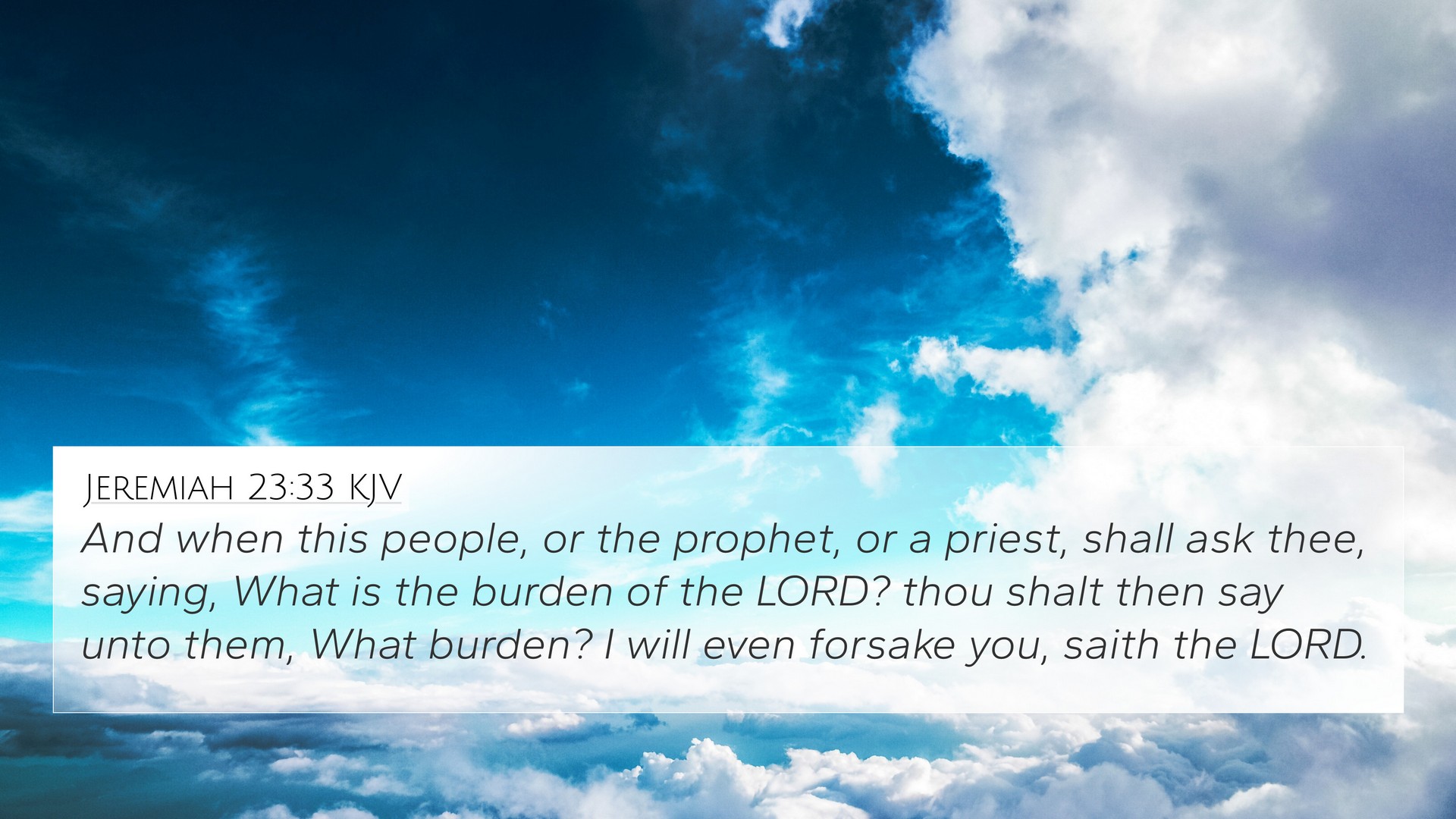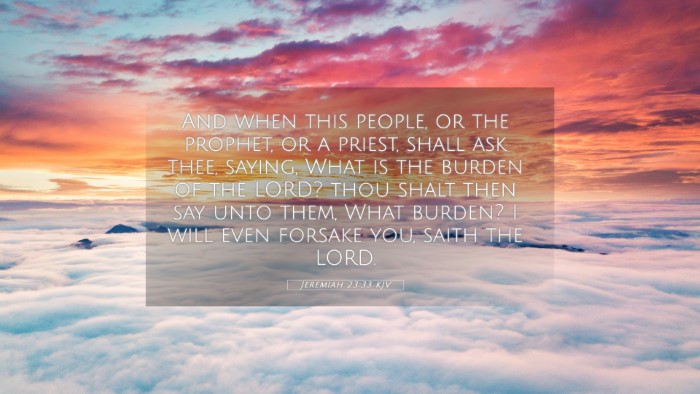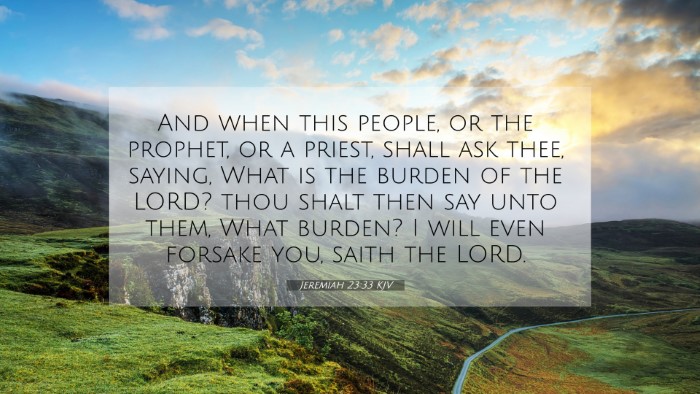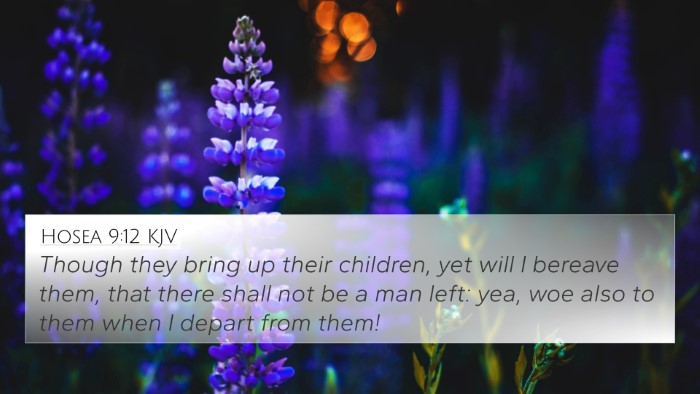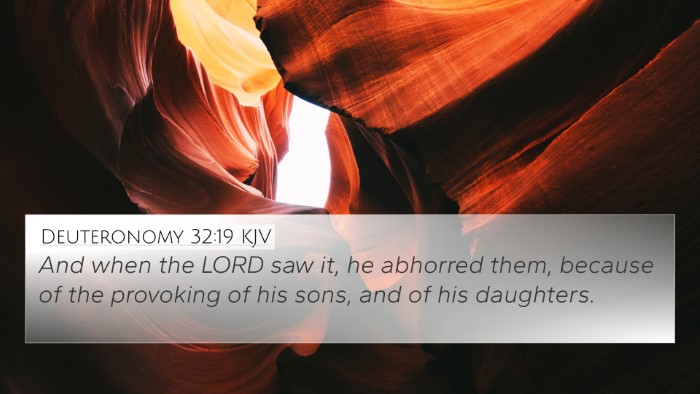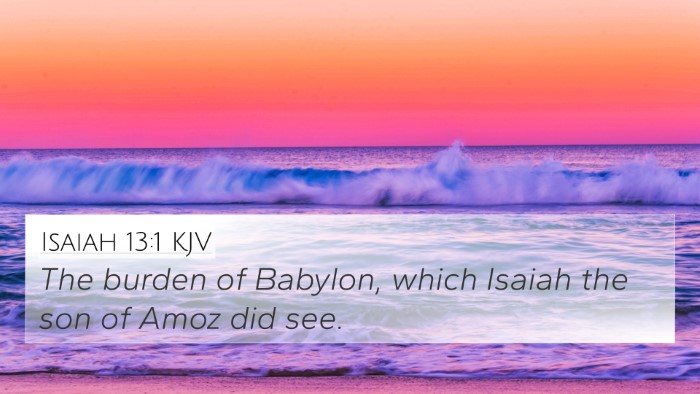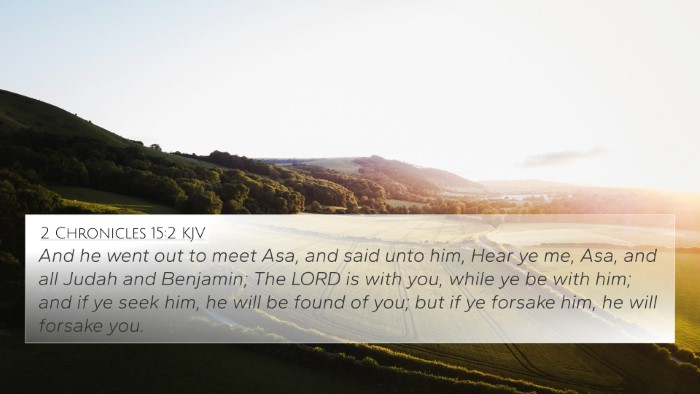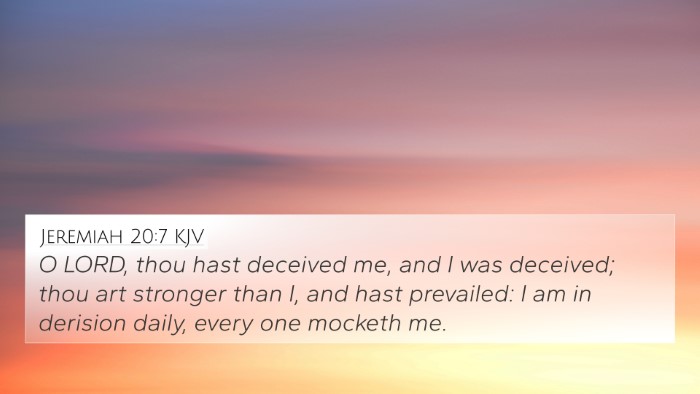Understanding Jeremiah 23:33
Bible Verse: Jeremiah 23:33 (KJV) - "And when this people, or the prophet, or a priest, shall ask thee, saying, What is the burden of the Lord? thou shalt then say unto them, What burden? I will even forsake you, saith the Lord."
Summary of Jeremiah 23:33
Jeremiah 23:33 addresses a crucial moment in the prophetic ministry of Jeremiah, where God responds to the people querying about the "burden of the Lord." The term "burden" refers to prophetic messages that are often heavy with the weight of judgment and impending doom. God, in this verse, indicates that the people’s continuous disobedience and reliance on false prophets will result in a moment of forsaking.
Commentary Insights
-
Matthew Henry's Commentary
Matthew Henry discusses how the people’s persistent inquiry towards prophets and priests about the burden of the Lord reflects their confusion and misunderstanding of God's messages. Instead of seeking genuine repentance, they continue in their disbelief. God's strong declaration of forsaking them serves as a warning against complacency in spiritual matters.
-
Albert Barnes' Notes
Albert Barnes elaborates on the idea that this verse is a representation of God's final separation from a people who have continually disobeyed Him. He emphasizes that the burden, which should have been a call to repentance, is turned into a point of mockery as the people show little regard for it. This leads to God stating that He will forsake them, demonstrating His averse reaction to their attitude.
-
Adam Clarke's Commentary
Adam Clarke reflects on the nature of the "burden" and how it is a common motif in prophetic literature. He notes that the request from the people implies a desire for comfort rather than a true understanding of divine intent. Clarke indicates that God’s rejection of the term reinforces the disconnect between His true prophetic voices and the false comfort offered by misleading leaders.
Connections and Cross-References
This verse has numerous connections with other Bible scriptures which help deepen our understanding:
- Zechariah 10:2 - Discusses false visions and misleading oracles.
- Ezekiel 34:10 - God’s judgment against unfaithful shepherds.
- Matthew 7:15 - Warnings against false prophets.
- Jeremiah 5:31 - The people love to have it so, meaning they prefer falsehood over truth.
- Hosea 4:6 - A lack of knowledge leads to destruction, paralleling the ignorance of the people in Jeremiah.
- Isaiah 30:10-11 - People telling prophets not to speak right things.
- Micah 3:5 - Prophets who lead the people astray for their own gain.
Thematic Connections
The themes arising from Jeremiah 23:33 are pivotal for understanding God's relationship with His people:
- Divine Judgment: The heavy nature of prophetic burdens often indicates judgment against sin.
- Authority of Prophets: God's clear distinction between true and false prophets.
- Spiritual Complacency: The dangers of a spiritually unresponsive society.
- God’s Faithfulness vs. Human Rebellion: A recurring theme through the Scriptures.
Cross-Referencing Insights
Using specific tools for Bible cross-referencing aids in deepening the understanding of this verse:
- Bible Concordance: Useful for finding related verses quickly.
- Bible Cross-Reference Guide: Helps in identifying themes and connections.
- Cross-Reference Bible Study: Encourages deeper exploration of scriptural messages.
Conclusion
Jeremiah 23:33 brings forth a vital lesson about the weight of God's message and the critical need for true understanding over superficial inquiry. Recognizing the connections between biblical texts, advocates for a comprehensive biblical study, enhancing our spiritual discernment.
